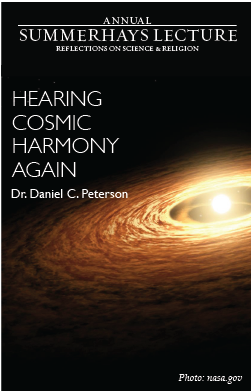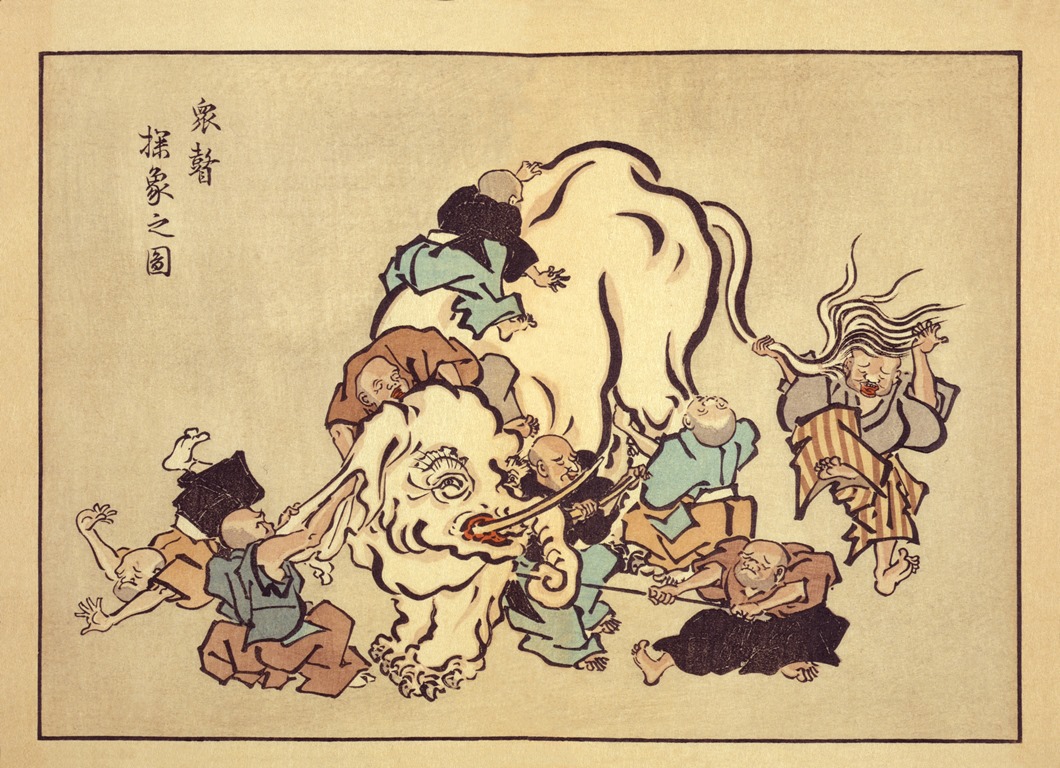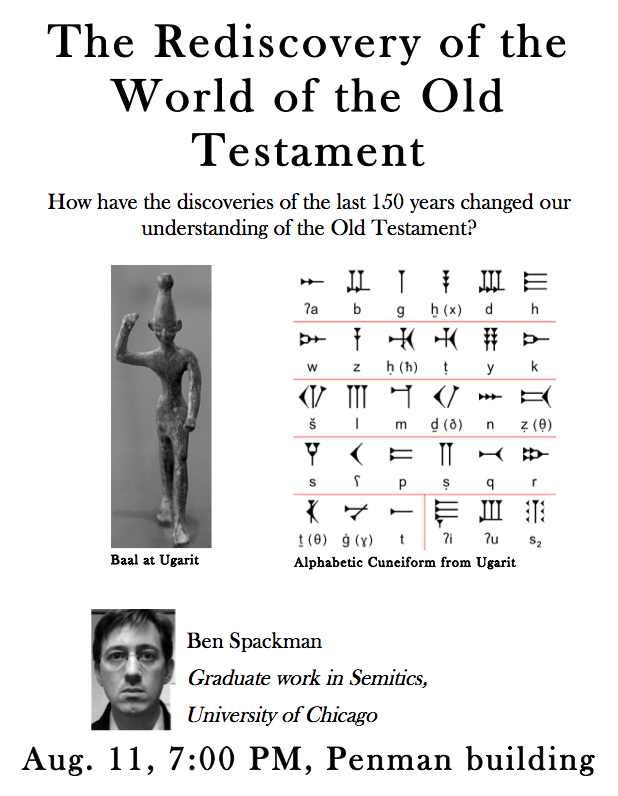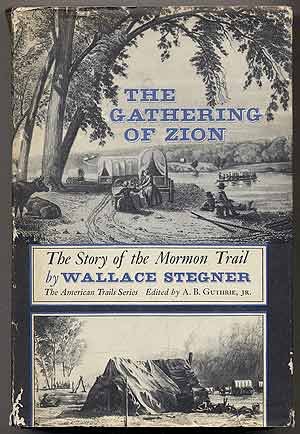Category: Cornucopia
-

Five things you should know about the BYU-Idaho dress code
There are five things you should know about the BYU-Idaho dress code. The first thing—that BYU-Idaho has a dress code—is probably redundant, since that seems to be the only thing that people outside of Rexburg hear about BYU-Idaho.
-

Just because you heard it at church, doesn’t make it true.
Or mean that you must repeat it. Because sometimes people say things in church are are just plain not true.
-

“Hearing Cosmic Harmony Again”—Dan Peterson Delivers BYU Summerhays Lecture 2013
Thursday at 7pm in the JSB Auditorium at BYU, Dan Peterson will speak on how our understanding of the natural world through history has reinforced or weakened belief in God. His title for the 2013 Summerhays Lecture is “Hearing Cosmic Harmony Again.” Here is an introduction from the Summerhays Lecture web page: For many centuries,…
-

Paradigms and Stumbling Blocks
I started thinking about the phrase “stumbling block” recently. It’s such a common phrase that it’s easy to take its significance for granted. And maybe miss its meaning and current relevance. The literal meaning of the words is obvious, and “stumbling block” is in that sense basically the same phrase as “tripping rock”. But “tripping…
-

Mortality
I have family members who have died recently, others who are dying, and some who tell me confidently every time we talk, “You know, I won’t be around much longer…”
-
It’s time to change early morning seminary
School’s back in session. Several weeks of early mornings have burned through the summer sleep reservoir. Inevitably, the debate over school start times sputters to life, ignited this year by Secretary of Education Arne Duncan, who tweeted “Common sense to improve student achievement that too few have implemented: let teens sleep more, start school later.”…
-

Temple and Observatory Group At NYC
The Temple and Observatory Group, which sponsored an event in July in Provo featuring Richard Bushman, Fiona Givens, and Terryl Givens is bringing the same lineup to New York City. Come listen to the three speak about negotiating LDS history and faith challenges on Saturday, September 28th from 10am – 3:30pm at 390 Broadway 3rd…
-

A Game Theoretic View of the Atonement
The Prisoner’s Dilemma came up in the comments to a post of mine from about a month ago. I outlined my thoughts very briefly there (see comment #12), but I’d like to return to them in more depth today. The Prisoner’s Dilemma is perhaps the most important scenario studied in game theory, and “it shows why two individuals…
-

What BYU-Idaho does right
You might be surprised to learn that the church maintains not one but two large universities, including one about 280 miles north of Provo. The existence of BYU-Idaho is one of those things that seems to easily escape notice, even for Mormons in the middle of a vigorous debate about what must be done about…
-

Complicity
It’s one thing to know that what you are witnessing is wrong; it’s another thing altogether to know what to do about it. I do know that inaction is often taken as tacit approval, and I do not want to be guilty of the sin of complicity
-

The Abyss of Nothing and Everything
I often heard, growing up, that teenagers think they are immortal. I always thought this applied to other teenagers. For the most part I didn’t get into the sorts of shenanigans that make adolescence famous. I felt I had a perfectly rational aversion to death and dying that manifest itself in, among other things, a general…
-

We Are All the Work of Thy Hand
A number of years ago, a friend wrote me an email that included this reminiscence: Friday was my last day of spring break. I had worked all through the break, and really wanted to do something fun, something indulgent. I immediately thought of the only thing I have ever done when I wanted to be…
-
Bloggernacle PSA: fMh Tracy McKay Scholarship
“If you haven’t heard around the ‘nacle– The fMh Tracy McKay Scholarship fund drive is in full force! Last year many around the bloggernacle rallied together to help the awesome Tracy McKay finish the last few months of her degree when her ward could no longer help her out. fMh is keeping the tradition going…
-

Rexburg
What is it like to move to Rexburg? If you’ve ever driven across the country, you’ve probably stopped for gas or lunch in some town you’ve never heard of and observed in astonishment that people not only live there, but appear to lead lives as happy and meaningful as any other American. Those lives may…
-
SMPT 2013 Reminder/Travel Funding
The August 23rd proposal submission deadline for the Society for Mormon Philosophy and Theology’s 2013 Annual Meeting is approaching. The conference will be held at Utah Valley University, October 31-November 2, with the theme, “The Atonement.” For a fuller discussion of the theme and submission information, see the Call for Papers flyer (PDF), or the…
-
Malian elections, a good loss for an LDS candidate
The Malian presidential elections have run their course and have produced a new president of Mali, Ibrahim Boubacar Keita. The second runner Soumaila Cisse has conceded and congratulated the new president. The election ran in two phases, first between all 28 candidates, and then a second phase between the two front runners. After the first…
-
On Faithful Puzzlement, Belief, and Choice
I thoroughly enjoyed Rosalynde’s FAIR talk, “Disenchanted Mormonism”! Thank you, Rosalynde! I really like the way she presents doubt as something that can be a productive and legitimate place to inhabit indefinitely, even while there is an active hope for greater knowledge and confidence in the future. I also really like how she embraces what…
-

Maybe We’re All Right
The story of the blind men and the elephant is as useful as it is widespread. It features in Jain, Buddhist, Sufi and Hindu lore and has also been applied in modern physics and biology. In case you haven’t heard it before, the essence of the story is that a few blind men each touch…
-
Guest Post: The Parable of the Two Sons
My friend and neighbor has written a beautiful parable that I am pleased to share with you today. David Harding works actively in his ward and neighborhood. His daughter is my daughter’s best friend. As those of you with children know, it is a great blessing to have your offspring fall in with good people…
-

Further Thoughts on Sin
Last week I wrote about the conflict between a basic axiom of human behavior (we tend to see ourselves as heroes in our own stories and rationalize our behavior accordingly) and the requirement that sinful actions be in some sense deliberate in order to be sinful. I did this primarily by suggesting that, while the original…
-

The Bible in Jacksonville
I wrote some lectures on the Bible to present in Paris, although due to scheduling and communication conflicts, only the first was actually delivered. I’m now scheduled to do two of them in Jacksonville, FL in the next two weeks. These will be held at the LDS Chapel on 440 Penman Rd. in Jacksonville. The…
-

Restoring the Paths to Dwell In – Part III
My main motivation was jealousy. I was fantastically jealous that my wife was running the coolest book club I’d ever seen.[1]
-

Some Thoughts on Sin
The textbook definition of sin is doing something that you know to be wrong. And yet, as has been frequently noted in fiction, villains (almost) never think to themselves, “Gee, I’m doing something wrong now.” We each live out narratives in which we star as the protagonist. We are the heroes of our own stories.…
-

Restoring the Paths to Dwell In – Part II
The first time I remember, it happened – of course – because I was searching for things on the internet. If I remember correctly, it even happened because I was researching for a Sunday School lesson. I read about Gallatin Missouri
-

Not quite “Faith in Every Footstep”
It’s no surprise that my favorite book about the pioneers was not written by a Mormon.
-

Restoring the Paths to Dwell In – Part I
I’d never seen anything like it. It wasn’t just Mormonism: Shadow or Reality? (which was opened on the living room coffee table with a pen resting on top). There was a pile of anti-Mormon literature in various stages of being read sitting around the room.
-
Gone Fishin’
What kind of associations does the idea of fishing raise for you? Leisure time? Quiet? Peace? Stillness? (Hopefully not a few beers.)
-
An Information-Rich Gospel: Correlation and the Growth and Maturation of the Church
The gospel of Jesus Christ is a rich, complex, and beautiful thing. It can’t be fully absorbed in one sitting, or one decade, or one lifetime. The gospel is information-rich. A recent New York Times article talks about Mormons who are led to question their faith by information about the church that they find, e.g.,…
